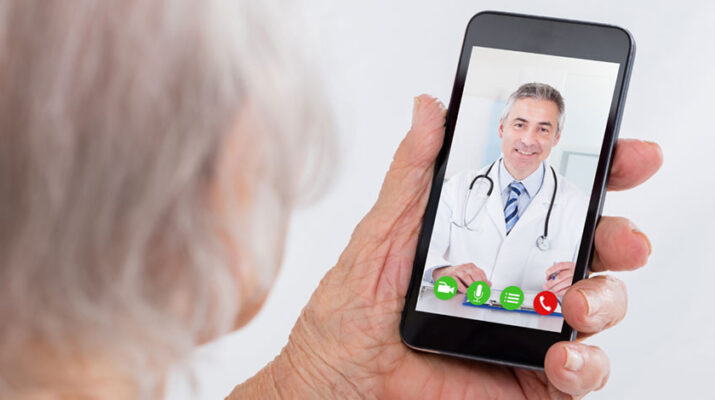By Deborah Jeanne Sergeant
Social distancing may curtail the spread of COVID-19, but it brings its own drawbacks, one of which is the hesitancy of many seniors in seeking care from their providers for ongoing conditions.
Considering the higher risk seniors have of contracting COVID-19, some concern is warranted — and that is the take away message that has made a deep impression on many older adults who have chosen to stay home as much as possible during the pandemic.
Physician Kim Petrone, medical director of St. Ann’s Community, believes that some older adults “still feel nervous about going out and contracting the virus in a doctor’s office,” she said.
Though initially providers wanted to delay non-urgent care, COVID-19 is now better understood, infection rates are down in Upstate New York and providers know how to reduce the risk of transmission.
“Any healthcare professional knows how it’s transmitted and how to protect you well,” Petrone said. “Those areas at the doctor’s office will be disinfected and the staff will be abreast at masking and cleaning.”
News stories with dramatic accounts of sickened seniors and climbing infection and death rates may make staying home the better idea until the pandemic goes away.
However, Petrone tells older adults to not further delay their doctor’s visits.
“I don’t know that within a reasonable time frame the risk will be better,” Petrone said. “The problem is that with delaying [seeking care], there’s no one who could tell you definitively when the risk for your health condition will increase so you can make an informed decision. You’re indefinitely delaying healthcare — that doesn’t serve you well.”
Timothy Holahan is an osteopathic doctor and assistant professor of medicine specializing in geriatrics and palliative care at University of Rochester Medical Center. He is also medical director of The Hurlbut, Penfield Place and Woodside Manor.
“There is a little apprehension which I think is normal, but we’ve definitely opened up,” Holahan said.
During the height of the quarantine, most providers began offering telemedicine to resolve as many routine cases as possible.
“We still try to take advantage of telemedicine as much as possible to limit exposure,” Holahan said. “We have started to do our basic health maintenance things now. They’re now clinically indicated.”
Things such as podiatry, optometry and dental care may be safely delayed for a short time for most patients; however, Holahan said that it is important to take care of these healthcare needs now, before a problem develops.
To reassure older adults concerned about COVID-19, he said that the community prevalence makes a difference.
“In Rochester, we have a low prevalence, which means it is safer,” Holahan said. “We have to revisit this if those numbers change.”
The protocols at doctor’s offices also matter. Holahan said that as long as proper medical office cleaning procedures and protective gear are used, it’s safe to continue doctor’s visits.
He especially encourages older adults to seek their flu vaccination and other care “before flu season gets worse and it gets really cold out,” Holahan said. “It is clinically necessary. You can only put it off so long.”

